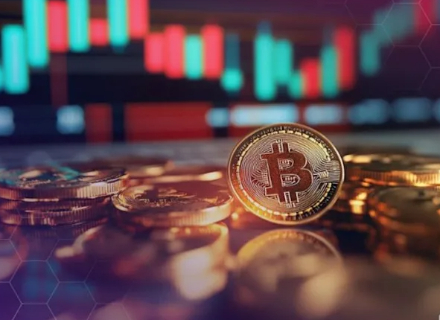New York Democrats Propose Cryptocurrency Mining Legislation
- Legislation targets energy use in proof-of-work mining.
- Aims to tax electricity for mining operations.
- Seeks to enhance energy sustainability.
New York Democrats, led by Representative Anna Kelles and Senator Liz Krueger, introduced bills targeting electricity consumption in proof-of-work mining. The proposal aims to tax electricity use to fund energy affordability programs, impacting cryptocurrencies like Bitcoin and Ethereum.
Democratic lawmakers in New York have initiated new measures against energy-intensive cryptocurrency mining. The proposed law introduces a consumption tax on electricity used by proof-of-work miners, focusing on Bitcoin and pre-merge Ethereum activities.
Representative Anna Kelles and Senator Liz Krueger have been active in regulatory areas, presenting Bills A9138 and S8518 in their respective chambers. These laws aim to promote energy affordability by taxing high-consumption mining operations. Liz Krueger, Senator, New York State Senate, explained, “The introduction of these bills reflects our commitment to balancing innovation in the tech sector with the urgent need for environmental sustainability.”
Immediate effects may include increased operational costs for miners and potential shift towards greener energy sources. The legislation has drawn mixed reactions from the crypto community, from concerns over regulatory burdens to support for sustainable measures.
The introduction of a consumption tax could deter current operations, potentially leading to relocation or shutdowns of mining facilities in New York. Some experts believe this may foster innovation in energy-efficient mining technology.
The financial implications could be significant as miners reassess their operational costs. Historically, regulatory actions have influenced market dynamics, though exact outcomes are speculative. The legislation under review reflects a trend towards aligning cryptocurrency operations with energy policies. This approach may encourage technological advancements that emphasize sustainability and compliance.
Disclaimer: The content of this article solely reflects the author's opinion and does not represent the platform in any capacity. This article is not intended to serve as a reference for making investment decisions.
You may also like
The era of permanent quantitative easing by the Federal Reserve is coming—where are the opportunities for ordinary people?
The article analyzes the background of the Federal Reserve potentially ending quantitative tightening and shifting towards quantitative easing, explores the current liquidity crisis facing the financial system, compares the differences between 2019 and the present, and suggests that investors hold gold and bitcoin to cope with possible monetary expansion. Summary generated by Mars AI. This summary is produced by the Mars AI model, and its accuracy and completeness are still being iteratively improved.

The Lives of Korean Retail Investors: 14 Million "Ants" Flock to Cryptocurrency and Leverage
The article discusses the high-risk investment behavior of retail investors in South Korea, including going all-in on stocks, leveraged ETFs, and cryptocurrencies. It also examines the socio-economic pressures behind this behavior and its impact on individuals and the financial system. Summary generated by Mars AI This summary was produced by the Mars AI model, and the accuracy and completeness of its content are still being iteratively updated.

Was Bitcoin "stolen" or "seized"? The mysterious connection between $14 billion worth of Lubian old coins and the US government
Wallets related to suspected fraudster Chen Zhi have transferred nearly $2 billion worth of bitcoin. The U.S. Department of Justice has accused him of involvement in a $14 billion crypto fraud case. Chen Zhi is currently at large, and some of the bitcoin has been seized by the U.S. government. Summary generated by Mars AI.

Fed loses access to "small non-farm payroll" data